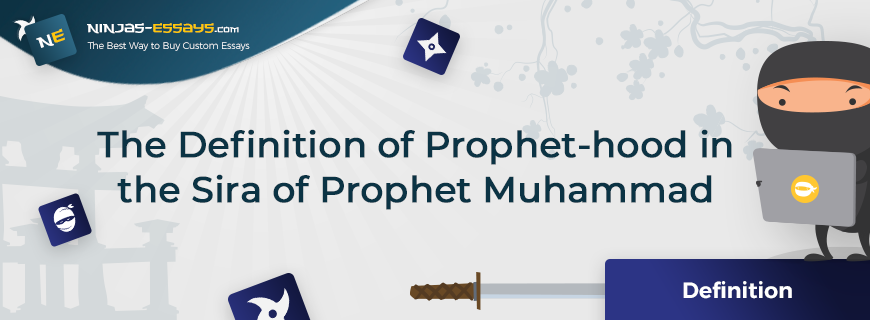
The Islamic nation, as a global religion, is majorly encompassed around the life and times of Prophet Muhammad. As the last and final prophet, his life’s genealogy was developed and preserved as an example and reference point to the ideal Islamic way of life. Both before and during the rise of Islam as a religion, the genealogical system of identity preservation was closely observed. Arab tribes paid detailed attention to the genealogy of individuals, families, clans and tribes, guarding this knowledge with meticulous care. Of importance is that, during the historical journey of Islam, a whole science was developed with regard to genealogy. It is this field which, being of great significance, provides vital data and referencing points. This knowledge was unwritten during the pre-Islamic era and passed down from one generation to the next by way of folklore, dance, music, festivities, ceremonies and poetry.

Best Essay Writing
Services

Need Custon Writen Paper? We'll Write an essay from scratch according to your instructions
It is perhaps this very reason that makes Western historical evaluations less considerable on the importance of tradition and culture amongst Arabic populations. To the Muslim nation, however, Muhammad’s genealogy has always been and is certain. This is due to the fact that they are able to trace his ancestry to Ishmael, and, therefore, to the prophet Abraham. This fact was recognized and accepted by various European opponents of Islam, even during the medieval era. It is, however, the modern academia, which provides varying questions as to his true genealogy. This paper will delve on the definition of Prophet-hood as exemplified in the Sira/ Life of Prophet Muhammad. Additionally, the paper will focus on some historical aspects as his contributions are both by example (Sunnah) and by teaching (Hadith). These two aspects contribute to a better understanding of the ideal Islamic way of life as rooted in the Holy Quran and pertinent Sharia Law (Motzki 23).
Prophet-hood: A Definitive Basis
The Sira (life or Sunnah) of the prophet provides a basis on which Islam and the Islamic way of life are best exemplified, through both words and deeds, as founded on the Quran and existing Sharia law. This thereby provides a reason for the consistent focus on generating a systematic genealogy of Muhammad’s life basing it on the aspect of prophet-hood. As the last of God’s prophets, the best preserved and surviving basis of his life’s history is by one of the earliest biographers. Ibn Ishaq provides the best genealogical information of Prophet Muhammad, with the basis being on his lifetime experiences. Born about 85 years after the Hijra (AH 85), in the city of Medina, he provided a detailed account of his genealogy, though original copy exists. Ibn Hisham extensively quarried the existing copy, with a majority of the material utilized being in the original words, phrasing and section segmenting. This thereby alludes to his work as being the best descriptive of the original biography; as an edited version enriched with by the editor’s interpolations.
Ibn Ishaq’s work is more of a compilation of traditions and anecdotes, collected and arranged in chronological order. The compilation, collected within Prophet Muhammad’s death, bears the requisite stamp of authenticity as required in Islamic Jurisprudence. This is, however, not in the modern sense of scientific verification and understanding as provided by modern research methodology. The aspect of supernatural occurrences (miracles) is ever present, given the same focus as the prophet’s experiences, life and actions. Consequently, while tales based on miracles are mostly unacceptable in the modern era, this does not portend to the whole biography being majorly un-authentic. Thus, facts based on the prophet’s life are present, with the aspect of miracles being the essential embroidery connecting religious faith to the life of Muhammad (Rippin 27).
This holds true, not only in the Islamic religion, but also other global religions such as Christianity and Buddhism. The translated editions are somehow edited versions, necessitated by various anomalies as provided in modern chronological methodology. However, the concise matter of the whole biography is retained, thereby providing the most sound of genealogical basis, with regard to the early life of Allah’s last Apostle. A prophet is described as an individual who is gifted with the skill of communicating the Supreme Being’s (or in this case Allah’s) messages to humanity. The birth and life of such an individual are often surrounded by mystery, with miracles being experienced by the parents, specifically by the mother. This is the case with a majority of religious leaders, deemed as prophets throughout history.
The Early Life of the Apostle of Allah
Many prophets existed before the birth of Muhammad, traceable to Abraham and Adam, all the way down through David, Solomon and Jesus. Muhammad, being the last prophet sent by Allah, was to provide an example to the rest of humanity on how to live a righteous and exemplary life. It is on record that when Muhammad’s mother became pregnant, she witnessed a vision with a voice speaking to her. The voice invoked holy blessings and provided the future work and journey of the prophet. Termed as the prince of the Arabic nation, when he was to be born, his mother was required to utter specific phrases binding the child’s life under the protection of the Supreme Being. It is through this offer that the child is protected from all the wickedness present, with the child’s name being provided in advance. This is applicable to not only Prophet Muhammad, but other great religious leaders of past eras.
The aforementioned miraculous nature of an individual’s birth attests to a fundamental aspect of prophet-hood thereby viewing Mohammad as a prophet. In addition, there was the emanating light permeating throughout the surrounding areas thereby showcasing the purity and sacred nature of such a birth. Abdullah b. Abdul-Muttalib, the father of Muhammad, died before the birth of the child, thereby leaving his care and nurturing to the mother. It is the miraculous nature of such a person, which enables him to provide a guiding and exemplary way of life to his immediate family, clans-men, tribes and inevitably, whole populations. Furtherance was the fact that his birth was a supernatural occurrence, such as the rising of a star and the immediate proclamation by an individual of righteous standing (Rippin 32).
In this case, a Jew was standing upon a roof in the city of Medina. He called out to his people, and when they had all assembled, he communicated the miraculous birth to all. In addition were the cautionary remarks and steps taken by such an individual, cautioning the people gathered on the need to change their lives to a better and more religious tradition. Dedication traditionally performed by the eldest male of the family and/ or clan was performed on the prophet, with his grandfather taking him into the Kabbah (Allah’s place of worship). Thanks giving and praises were usually offered, with sacrifices also being present as a symbolic representation of the child’s importance and the Supreme Being’s greatness and merciful abundance.
Revelation: The Sanctioning of the Prophet
Various miracles abound throughout his life, from his early birth and childhood experiences, with myriads of narratives being present. All this is regarded as symbolic of the holy nature of prophets’ birth and life, with many blessings falling upon their care-takers or guardians. In the case of the prophet, it is Halima, the daughter of Abu Dhayb, whose life was filled with blessings from the care of the young prophet (Motzki 34). Various individuals, having come across such a child, often do share many account witnesses of the miraculous nature of such an individual. This further propels his name and significance to various regional areas. As the apostle’s time of revelation approached, different religious groups did discuss various prophecies concerning such an event as provided in their sacred books and their own religion’s prophets.
All prophets before Muhammad had been sent to earth, binding each of them, to Muhammad’s arrival. By making a covenant with each of the prophets, Allah provided the foundational basis of his life, in addition to providing guidance and aid against all opponents. Visions, witnessed while awake, characterized Muhammad’s early prophetic life. Additionally was the prevailing nature of Muhammad loving personal solitude as an avenue of better engaging in religious observance and prayer. The presence of an angel as the divine messenger of the Supreme Being provides further proof of the prophetic nature of Muhammad’s life. It is through Angel Gabriel that Muhammad officially received his calling to create and fortify the Islamic nation.
His message of hope and deliverance to the people was met with great resistance, especially by the Quraysh tribe. This was the most prosperous tribe in the nation, as well as the guardians of the Sacred Kabbah and existing religious observance. Muhammad’s prophecies, words, actions and likings were perceived as a threat by the populations. Throughout his life, he strove to convert into Islam everyone who came to him, both in Mecca, and afterwards in Medina, after the great Hijra. Prophet Muhammad was a great individual, with exemplary skills in social reform, diplomacy, trade and industry, military strategies, legislation and philosophy. In addition, was his great oratory skill, which provided him with a platform on which he could enhance the conversion of individuals into Islam (Rippin 37).
In conclusion, through various tribulations, dangers and persecution, he was able to come out stronger, with Allah’s mercy and protection guiding his every move. Last, but not least, is the aspect of his eventual passage, from this life to the next. Like many founders of global religions, his death is surrounded by mystery, with Muhammad’s death being deemed unnatural. Furtherance is the fact that his body was never found. No one knows the specific resting place of the prophet. All the above provide an account of the life of an individual, deemed as a great prophet, thereby attesting to the prophet-hood of the Sira/ life of Prophet Muhammad.


